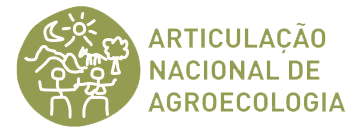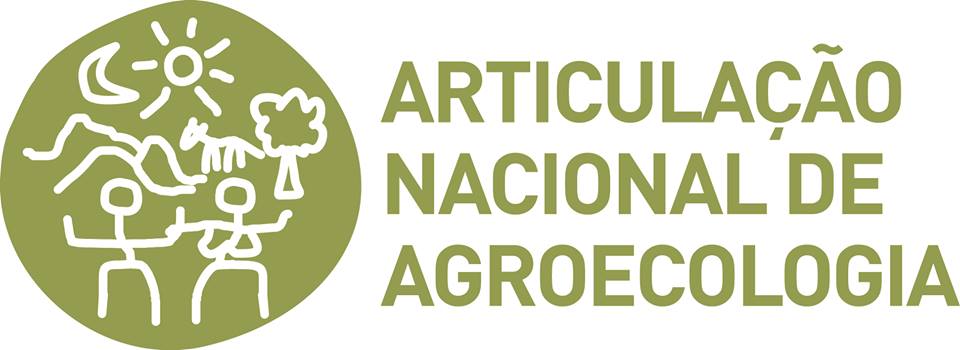Jean Marc von der Weid – Twenty years after Rio de Janeiro was the stage for the United Nations Conference on Environment and Development, the world’s gaze returns to Brazil for the Rio+20 Conference in June this year. The sequel to this first international meeting on sustainable development may well have important implications for the future of family farmers. Jean Marc von der Weid founded and works with AS-PTA, a non-governmental organisation based in Rio, supporting capacity building and institutional policies in favour of family farming and agro-ecology.

- Jean Marc von der Weid
Even though Rio+20 holds many promises for changing the world’s perspectives on sustainable agriculture, it is important to remain realistic about the limited possibilities of it leading to serious political commitments. Jean Marc von der Weid is a “Rio+20 realist” – he does not expect much from the official meeting, but he is very positive about the political impacts that civil society mobilisation can have on international public opinion, “with positive effects in the medium to long term”.
How are the preparations for Rio+20 going?
Preparations in Brazil are progressing at a snail’s pace. The facilitating committee is too large and has strongly conflicting views. One group of organisations gives more importance to lobbying government representatives, and are more receptive to some of the “green economy” proposals. A second group is more focused on organising external demonstrations to denounce the anticipated failure of the official conference. This group is looking to mobilise opinions around the issue of peoples’ exclusion from development and the negative impacts of development. A last group rejects the whole framework of the official document that will provide the basis of discussions at Rio+20.
These organisations criticise the document’s inadequate diagnosis of the causes of the multiple and interrelated ecological crises. They denounce the “green economy” proposition as a lure to make people forget about the promises made at the 1992 conference that were not kept. This group criticises the very concept of development and proposes alternative pathways and policies to change the present situation.
How did the 1992 conference influence small-scale farming?
AS-PTA and Rio+20
AS-PTA is the Brazilian regional partner of the Agricultures Network: they produce Agriculturas – Experiências em Agroecologia. Since 1983, ASPTA has been working to strengthen family farming and promoting sustainable rural development in Brazil through the application of agro-ecological principles.
As a member of the political co-ordination group of the National Agro-ecological Alliance (ANA), AS-PTA is immersed in a dialogue process with the Brazilian government over how to elaborate the National Agro-ecological Policy, an official initiative to be launched during the Rio+20 conference. ANA brings together movements, networks and organisations engaged in the construction of alternative sustainable rural development.
AS-PTA and ANA are organising a set of regional seminars around Brazil in order to engage civil society networks and movements in this process. The two organisations are also involved in laying the foundations for the debates about agriculture that will be held at the People’s Summit, the side event of the Rio+20 conference. “Our future role will be to co-ordinate the activities around the agriculture issue surrounding the conference at the national level with the rural social movements,” Jean Marc explains. AS-PTA and ANA are discussing the launch of an initiative to unite all the organisations involved in the multiple issues surrounding sustainable agriculture and food security and to put together a parallel event just before the beginning of Rio+20.
The outcome will be a document based on an updated and expanded version of the “Time to Act” document. This document will be taken to government representatives, published through various media and (if agreed with the facilitating committee) be presented to the conference. On behalf of ANA, AS-PTA will also contribute to organising the Sustainable Agriculture debate. Paulo Petersen, executive-director of AS-PTA, elaborates: “In coherence with our methodological principles, we will propose activities that will be based on concrete experiences and cases. Our magazines provide a strong voice for our political proposals.”

A step towards greater changes. Photo: Gabriel Fernandes / AS-PTA
I think that conference consecrated the concept of sustainability, even though the definition of the concept is still subject to intense debate, with everyone, from Monsanto to Via Campesina, considering they have the right take on it. From a practical point of view, since 1992 there has been a strong expansion of industrial agriculture, with more use of pesticides and chemical fertilizers, as well as the launch of GMOs. The conference did try to address this trend, but most of the decisions taken there to try to control the onslaught of conventional industrial agriculture were eroded at further international negotiations.
What would be your desired outcome from the Rio+20 conference?
“Desires” in this case are more like dreams. We need a clear “anti Green Revolution” resolution, a condemnation of chemical inputs, and most of all, of GMOs. We need resolutions in favour of agrarian reform. We need resolutions in favour of fair trade and food sovereignty. Internationally, in relation to sustainable agriculture and food security, there is a paper signed by some 130 organisations called “Time to Act”. Its main message is to condemn conventional agricultural development and push for strong support for agro-ecological development, centred on family farmers.
The document seeks to push the agriculture issue to the forefront of the Rio+20 debates as the most important single cause of many of the present ecological crises. I have participated in the formulation of this document and in the discussions in Washington last summer to build a consensus around it.
Agro-ecological farming has made great progress, and we can now present hard evidence of its successes, and demonstrate its potential as a solution to the evil effects of industrial and corporate agriculture. However, all these advances cannot hide the fact that family farming is being destroyed all over the world, and that public policies at a national and at an international level have been biased to support unsustainable forms of industrial agriculture. This situation is simply a result of a “rapport de forces” or “balance of power”.
Corporate money, plus government power and policies, plus a supportive international framework (CGIAR, WTO, etc.) have been more powerful than small-scale farmers and the environmental and consumers’ movements.
So do we need another Rio conference?
We do need an environmental conference, but not of the kind that is offered by governments and the UN system. Governments and international UN organisations have shown themselves to be unable to implement the dramatic changes in national and international environmental policies that are needed. They have consistently watered down whatever gains were achieved in 1992 in the series of negotiations and conferences that followed that event.
I do not believe any amount of lobbying will be enough to bring about the international and national policies needed to promote sustainable agriculture based around family farming and agro-ecology. Civil society organisations in Brazil are divided on these issues, even though my feeling is that most organisations are critical.
What do you believe will make a difference for small-scale farmers?
I guess we may have more success by denouncing the official meeting as irrelevant and convincing civil society of the urgent need for a radical transformation of the present food and agricultural systems. Of course, I don’t believe that civil society by itself can substantially change the status quo. We need appropriate national and international policies, and as such we need governments and international institutions to act responsibly.
However, I think that a change in the latter will not occur without a very strong pressure from the public opinion and social movements. It will be hard to succeed in pressing the conference to adopt the needed reforms, but demonstrating against their conduct will be a step for further changes in the future. Unfortunately, I think that the crisis will have to become even more pronounced before the actions needed are adopted. Let us hope it will not be too late.
Do you think that the voices of small-scale farmers will be heard?
There has been very little participation of small-scale farmers’ organisations up to now. In the facilitating committee there is Via Campesina and FETRAF (the National Federation for Family Farming) which both represent farmers. We are missing the biggest (and more conservative) small-scale farmers’ organisation, CONTAG (the National Confederation of Agricultural Workers). There are also several NGOs who work in support of small-scale farming, including ourselves, that have not yet been involved in the committee. This can be changed once a clear call to arms is launched by a significant group of organisations.
We hope to encourage such a mobilisation. We think that the choice of civil society activities during the conference will provide a starting point for other social movements to identify where and when they can participate. At a national level we believe the farmers’ movements will become more engaged as the conference date approaches. As for the international farmers’ movements, I don’t have a clear view of their intentions. We know Via Campesina will gather an international group at a camping site at the People’s Summit, but I don’t know how big this mobilisation will be.
I believe that the most important positive effect of this event will be the education of the general public: publications, like Farming Matters and Agriculturas, will reinforce our case through examples and studies. This is most welcome.
More information:
Interview: Laura Eggens

